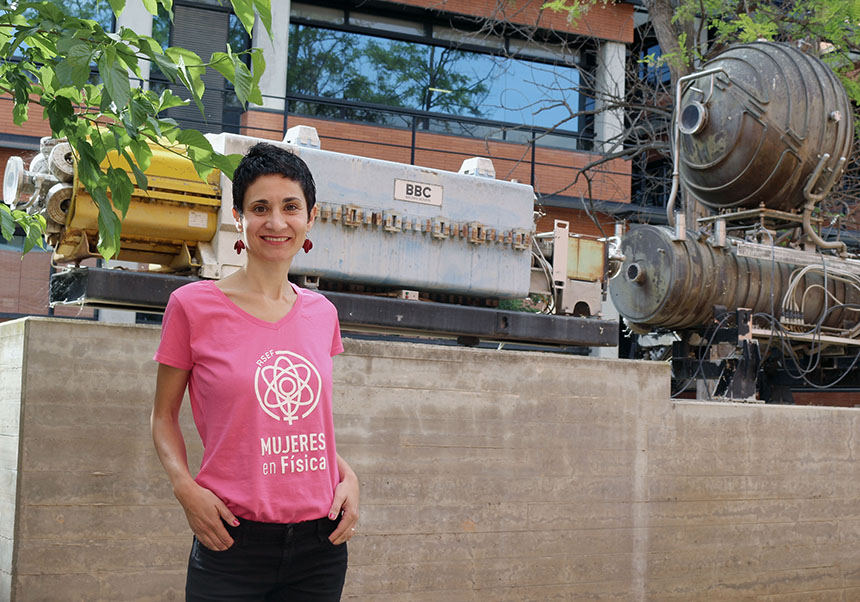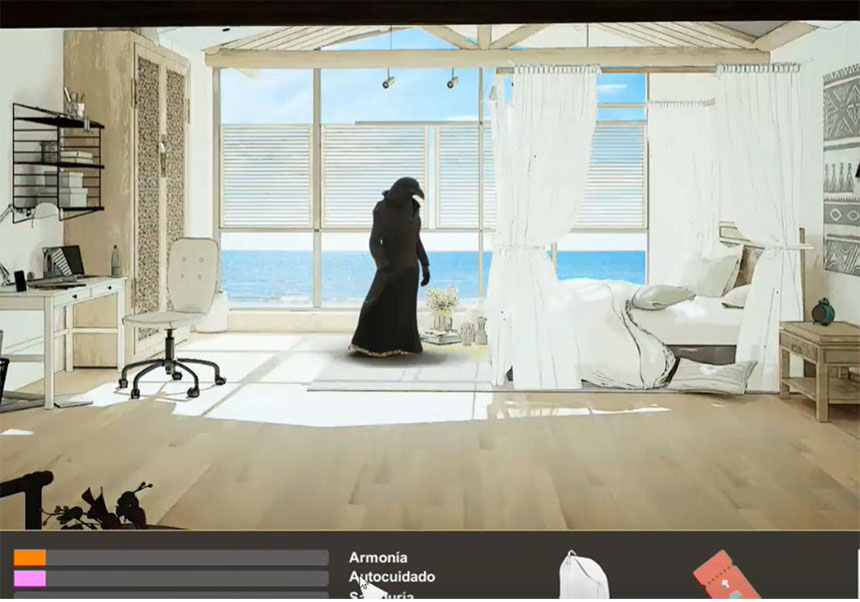María Moreno Llácer, winner of the L’Oréal-UNESCO For women in Science Award
- Parc Científic
- May 30th, 2024

Research carried out by the scientist from the Institute of Corpuscular Physics (IFIC, UV-CSIC) María Moreno Llácer has been awarded by the L’Oréal-UNESCO For Women in Science programme, which recognises the most innovative work of five national women scientists under the age of 40 in its Spanish edition. The awarded research concerns the origin of mass in the Universe and focuses on the interactions between the top quark and the Higgs boson.
María Moreno Llácer has been recognised for her research Concept and the origin of mass in the Universe, why are we made of matter and not antimatter? (orig. Concepto y origen de la masa en el universo, ¿por qué estamos hechos de materia y no de antimateria?), which seeks to study in depth the interactions of the most massive known elementary particle, the top quark, with the Higgs boson. In her own words: ‘something happened at the beginning of the Universe, right after the Big Bang, that caused the initial matter-antimatter symmetry to somehow break down, and matter –electrons, protons, neutrons– ended up completely dominating the contents of the Universe.’ The work of Moreno Llácer and her team aims to understand the reason for the absence of antimatter in the Universe.
The awards, which focused this year on the fields of Physics, Mathematics, Technology, and Engineering, are endowed with €15,000 and aim to support research projects and draw attention to female leadership in the scientific field in Spain.
The jury was comprised of Director of the National Cancer Research Centre (CNIO) María A. Blasco; Research Professor at the Department of Materials Theory and Simulation in the Material Science Institute of Madrid of the CSIC Pilar López Sancho; Co-founder and Director of the ELLIS Alicante Foundation Nuria Olvier, and Director of the Barcelona Supercomputing Centre (Centro Nacional de Supercomputación) Mateo Valero. All of them are prominent scientists in the areas covered by this edition.
María Moreno is a researcher at the Institute of Corpuscular Physics (IFIC), a joint centre of the Universitat de València (UV) and the Spanish Research Council (CSIC), and lecturer in the Department of Atomic Molecular and Nuclear Physics of the UV. She devotes herself to experimental particle physics and works on one of the world’s largest experiments, ATLAS, of the Large Hadron Collider at the European Organisation for Nuclear Research (CERN) in Switzerland.
Among her numerous scientific achievements, her participation in the discovery of the Higgs boson in the ATLAS experiment in 2012 stands out, a project awarded with the 2013 Princess of Asturias Award for Technical and Scientific Research and the European Physical Society Award.
As far as the presence of women in science is concerned, the researcher emphasises that work-life balance is one of the biggest challenges women face in science: ‘Luckily, this is changing and daily tasks are being carried out equally. However, it is often women who end up slowing down their scientific careers, attending international conferences or research stays. Providing childcare facilities in research centres, even in conferences, would greatly help in terms of work-life balance. I believe there is still much to be done.’
File in: Matemáticas , Astronomía y Astrofísica , Física
















